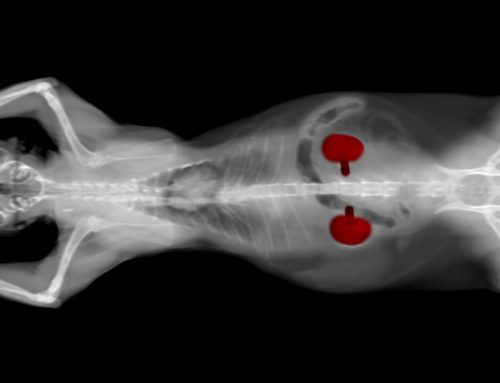You likely marvel at how perceptive your pet is to your feelings. They always seem to know when you are sad and need cuddles. When you talk animatedly, your pet likely starts wagging their tail in excitement. Unfortunately, you can’t always decipher how your pet feels. Most pets instinctually minimize illness and injury, which predators in the wild view as a vulnerability. To learn how to identify your pet’s pain or sickness signs, read our Mercer Street Veterinary Hospital team’s explanation of how to determine whether they need veterinary treatment.
Excessive vomiting
While occasional vomiting might not be an emergency, frequent vomiting or vomiting accompanied by excessive drooling or behavior changes, such as lethargy or appetite loss, can indicate something more serious. If your pet has been vomiting repeatedly during a 24-hour period, cannot keep down food or water, develops blood in their vomit, or shows other illness signs, seek veterinary care.
Breathing difficulties
Respiratory changes, such as breathing difficulties, coughing, changes in your pet’s breathing sound, or an increased respiratory rate, can signify serious conditions, such as heart and respiratory disease, and warrant a veterinary visit. Excessive panting is also a cause for concern, especially for flat-faced (i.e., brachycephalic) pets who are prone to overheating. Ineffective panting can lead to heatstroke, the fatal condition that occurs as a result of rapid exhaustion, an increasing body temperature, and escalating emotional and physical distress.
Changes in eating and drinking habits
Sudden changes in your pet’s eating and drinking habits can indicate a serious underlying problem, especially when your pet has other illness signs such as vomiting, diarrhea, or excessive urination. Common conditions that cause a pet’s appetite and thirst changes include:
- Dental disease — Dental disease is one of the most common conditions that affects pets. The first dental disease signs your pet exhibits may include bad breath, plaque and tartar accumulation, and swollen, inflamed gums. Pets may continue to eat and drink normally until their mouth becomes exceedingly painful, so identifying and treating dental disease in its earliest stages is important.
- Endocrine disorders — Common endocrine disorders, such as diabetes, Cushing’s disease, hyperthyroidism, hypothyroidism, and Addison’s disease, affect your pet’s regulatory hormones and can interfere with their eating and drinking habits.
- Organ dysfunction — Organ damage or disease that causes kidney or liver dysfunction can alter a pet’s eating and drinking habits.
- Gastrointestinal (GI) upset or blockage — An upset stomach can make your pet feel so bad that they stop eating and drinking. In addition, if your pet eats something that lodges in their GI tract (e.g., a bone, string, toy), they will not want to eat or drink. Your veterinarian may have to remove the foreign object surgically.
- Certain cancers — Changed eating and drinking habits are often the first sign of cancer. Certain cancers (e.g., lymphoma, osteosarcoma) are notorious for interfering with a pet’s appetite and thirst, but any cancer can trigger such a decline.
Changes in stool or urine
Monitoring your pet’s elimination habits might not be the most pleasant task, but doing so is crucial in the detection of a potential health issue. A pet’s stool is a good indicator of their overall health. If your pet’s stool includes worms, blood, or mucus, or if your four-legged friend has diarrhea for more than 24 hours, bring them to our Mercer Street Veterinary Hospital. If your cat is straining to urinate or urinating excessively, they could have a life-threatening emergency condition.
Limping or lameness
Limping can indicate an orthopedic injury such as a strained muscle or tendon. Such an injury can often heal on its own with rest and prescription anti-inflammatories. However, other injuries, such as a cranial cruciate ligament (CCL) tear or a broken bone, require surgical repair. Some medical conditions can also cause your pet to limp, including Lyme disease and degenerative joint disease.
Squinting or eye discharge

Changes in the appearance of your pet’s eyes can indicate several underlying conditions, and our Mercer Street Veterinary Hospital team should always examine an ocular condition. Without treatment, eye problems can rapidly go downhill and lead to severe pain, corneal ulcers, irreparable damage, or vision loss, so seek prompt care if your pet exhibits these concerning ophthalmic signs:
- Redness
- Cloudiness
- Excessive tearing
- Discharge
- Squinting
Our team is here for your pet if they experience an emergency. However, even when your pet appears healthy, preventive care is the best way to monitor your furry pal’s health status and identify potential issues before they become severe. To schedule your pet’s annual wellness examination, schedule an appointment with our Mercer Street Animal Hospital team.























Leave A Comment